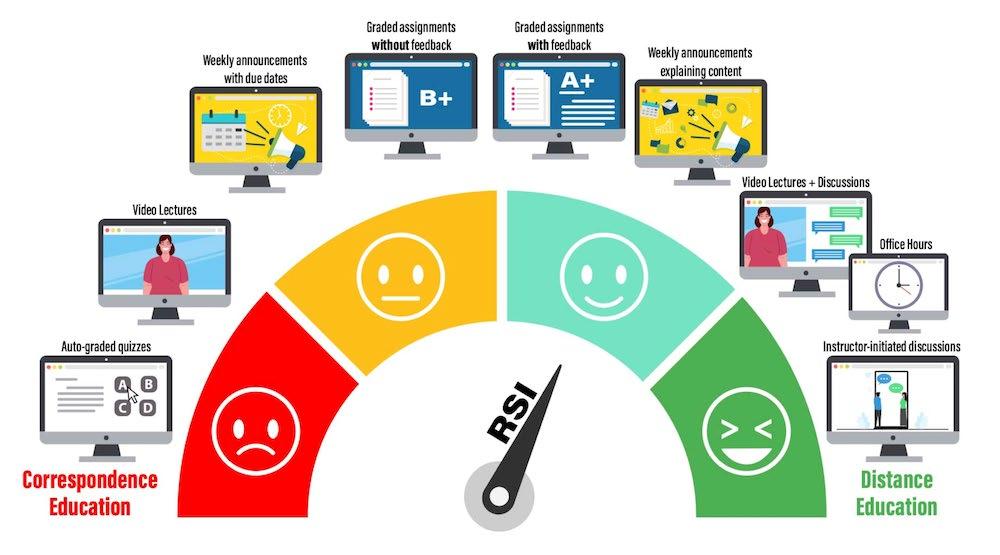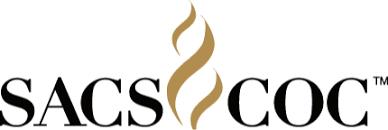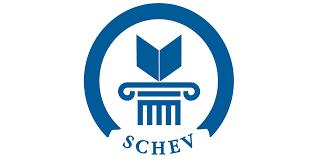Virginia State University Online Guidelines and Protocols

General – Faculty & Staff
February 2023
2 Table of Contents Virginia State University Online Guidelines and Protocols......................................................................... 1 Virginia State University (VSU) Distance Education Overview 3 VSU Online Guidelines and Standard Operating Procedures Purpose Statement ................................ 3 VSU Online Mission .................................................................................................................................. 3 State Approval and Regional Accreditation 4 Modes of Delivery .................................................................................................................................... 4 Online Programs and Courses 5 Faculty Online Training Requirements .................................................................................................... 5 Distance Education Course Standards and Assessment ......................................................................... 6 Regular and Substantive Interactions in Online Courses 6 Course Load, Compensation, Ownership of Materials, and Copyright .................................................. 7 Availability and Communication with Students, and Office Hours 8 Faculty Response Time ............................................................................................................................. 8 Online Course Availability & Run Approval ............................................................................................. 8 Online Credit Hours 8 Learning Management System Course Storage ...................................................................................... 8 Distance Education Technology 9 Appendix A – Important VSU Office of Distance Education Links 11
Virginia State University (VSU) Distance Education Overview
Distance education is a planned teaching/learning experience in which teachers and students are separated by physical distance, and teacher-student interaction occurs through multiple modalities of existing and evolving media.
Distance education requires special course design techniques, instructional techniques, assessment, and methods of communication by electronic and other technology, as well as unique organization and administrative arrangements.

VSU Online Guidelines and Standard Operating Procedures Purpose Statement
Distance education provides learning opportunities that are not restricted by method, time, or place. It is expected that VSU online instruction meets the same quality standards as traditional face-to-face instruction. To achieve this goal, Virginia State University's distance education guidelines and operating procedures serve two purposes:
1. Provide guidelines for implementing distance education at Virginia State University.
2. Communicate quality standards for delivery and assessment of fully online programs and courses.
Evaluation and curriculum of VSU distance education courses and programs take place in the context of the policies and procedures of the University and all existing academic programs.
VSU Online Mission
VSU Online implements the University's mission of preparing a diverse population of men and women through the advancement of academic programs and services that integrate instruction, research, extension, and outreach by supporting opportunities for students to enroll in online academic degree programs, certificates, and online offerings through the use of sound distance learning methodologies, tools, and operational practices.
Virginia State University's (VSU) Office of Distance Education manages the infrastructure, support, and development of distance education at VSU.
3
Online Programs and Courses
Virginia State University offers fully online degree programs and a la carte online courses.

Fully Online Programs
Programs in which all courses are offered in the online delivery modality and have to obtain internal and external approvals. Fully online programs cannot be launched until all approvals are received and all program courses meet Quality Matters online course design standards through the VSU Office of Distance Education. Fully online program planning is initiated by contacting the VSU Office of Institutional Effectiveness.
• VSU Internal Approvals - Internal approvals include the VSU Faculty Senate through the applicable undergraduate or graduate Faculty Senate Curriculum and Instruction Committee. Additionally, approvals must be obtained from the Office of the Provost and the VSU Board of Visitors.
• External Approvals - Fully Online programs must obtain a modality change notification from the State Council of Higher Education for Virginia (SCHEV) and submit SACSCOCS change of delivery modality. Additionally, any applicable programmatic accreditor approvals must be initiated before an online program can be launched.
A la Carte Online Courses
• VSU academic programs offer a la carte courses. According to SACSCOC accreditation requirements, a face-to-face program cannot provide 50% or more of an existing program's courses online without a SACSCOC substantive change notification. The State Council of Higher Education for Virginia (SCHEV) requires, a change in modality (hybrid or online) if more than 24% of a program’s courses are delivered online. Additionally, SCHEV requires that programs that are not approved as fully online, continue to offer students face to face options for program courses.
• All online courses should follow Quality Matters Higher Ed course design standards. Online courses are approved based on Quality Matters standards though the VSU Office of Distance Education.
Virginia State University’s schedule of classes, maintained by the VSU Registrar's Office, indicates which courses are offered via the distance education delivery format.
A student must be enrolled in a VSU fully online program to obtain designation as an online-only student.
Faculty Online Training Requirements
Faculty members teaching online courses, complete training programs and enrichment to ensure the implementation of online instruction in a pedagogically sound manner to achieve student mastery.
5
Online courses require online instruction, course design, and instructional technology training, as online teaching proficiency requires a different set of skills than face-to-face instruction.
Virginia State University's Office of Distance Education online instruction approval process is supportive of instructors to enhance their skills to provide exceptional online instruction. As a result, VSU faculty members teaching online courses must be approved to teach online via one of the listed methods:
• VSU Quality Matters Pathways Online Teaching Program – Quality Matters (VSU Sponsored)
• Online Learning Consortium Online Teaching Certificate – Online Learning Consortium (No longer sponsored by VSU)
• Introduction to Distance Education for Academics (IDEA) – Strategic Education (No longer sponsored by VSU)
• Online Training Exceptions
o Previously earned comparable in-house online teaching certificate from an accredited university or professional organization, examples Online Teaching Certificate Course –OT 101 - Adjunct World, Virginia Community College System Online Teaching Certificate, and completion of the Quality Matters Designing Your Online Course Workshop (DYOC)
o Documentation of at least two year of online teaching experience pre-COVID-19 emergency remote instruction (March 2020).
• As with face-to-face courses, online faculty must be programmatically credentialed to teach their assigned online course(s).
Distance Education Course Standards and Assessment
All distance education courses at Virginia State University are comparable to traditional courses and adhere to the same learning outcomes, prerequisites, course standards, and requirements as face-toface sections of identical classes. Distance Education courses are designed to adhere to the aforementioned, with design elements to adapt to online delivery and best practices in online instruction As a result, the same programmatic assessment requirements, apply to online programs, including assessment of student learning outcomes, student satisfactions, and program productivity
Virginia State University is a Quality Matters University. As a result, VSU applies Quality Matters Higher Education 6th edition online course design standards in the design and delivery of online courses. The Office of Distance Education's Online Course Development Checklist (See Appendix A link) integrates Quality Matters Standards, along with additional recommended design considerations.
Regular and Substantive Interactions in Online Courses
The U.S. Department of Education requires that all online courses for which students may use Title IV funds (federal financial aid) include regular and substantive interaction between students and instructors. Regular and substantive interaction (RSI) is one of the key elements distinguishing distance education from correspondence education and thus one of the central determinates for students’ ability to use Title IV funds
Regular and substantive interaction (RSI) must occur in a predictable and regular basis, should be instructor initiated, focused on the course content and there must be monitoring of students’ academic engagement and intervention when appropriate.
6
Course Load, Compensation, Ownership of Materials, and Copyright
Online Teaching
Online courses may be part of a faculty member's regular teaching load, with the same compensation rate as face-to-face courses. Online courses may also be taught as an overload, at the same compensation rate as traditional courses taught as an overload.

Online Course Development
Faculty members who work with the VSU Office of Distance Education on course development for a new fully online degree program or redevelopment of a face-to-face course for a new fully online degree program receive a course release or compensation. The faculty member's contract timeframe during the development period or faculty status determines course release or compensation.
o On contract development – course release provided by the faculty member's department
o Off contract development – compensation provided by the Office of Distance Education
o Adjunct - compensation provided by the Office of Distance Education
o 12-month faculty or faculty administrators are not eligible for course development pay.
Online Course Ownership and Intellectual Property
VSU Office of Distance Education follows the VSU Intellectual Property (Copyright and Patent) policy Course shells developed for online delivery are considered works produced as part of the course of assigned duties. As a result, the University owns developed online course shells.
Copyright
Faculty must keep in mind copyright, trademark, and licensing when designing and developing distance education courses. Examples include copyrighted textbooks and resources, graphics, text selections, photographs, audio clips, or video clips. Faculty members must acquire and document permissions. If copyright permission cannot be obtained or ownership is questionable, faculty should substitute with resources with clear copyright permission or substitute resources in the public domain or open
7
RSI Dashboard Illustration, SUNY Online
educational resources (OER). When using Creative Commons materials, the associated Creative Commons license must be noted within the course shell.
Availability and Communication with Students, and Office Hours
As Virginia State University requires, each instructor should maintain office hours every week during each semester to accommodate student instructional or remediation needs. Online faculty should post Office Hours on their syllabus and within the learning management system. Online instructors may use various modes of synchronous online communication (e.g., Zoom, email, phone, Learning Management System tools, etc.).
Faculty Response Time
Instructors teaching online courses are encouraged to respond to student inquiries (Whether email, phone, messaging, etc.) in a timely manner within 24 - 48 hours.
Online Course Availability & Run Approval
The online program department chairperson has primary responsibility for overseeing the scheduling of courses offered through the department each semester and summer, including the scheduling of the course delivery format. Courses scheduled for online delivery, must run using an approved online course shell Online course shell approvals come through the VSU Office of Distance Education, where online course shells are checked periodically to confirm adherence to Quality Matters course standards. Additionally, faculty members must be approved to teach online by the Office of Distance Education. Approvals are communicated to the VSU Registrar’s Office to assist with scheduling.
If a department does not have an approved faculty member to teach an online course or an approved online course shell, the department chairperson should consider offering the course when an approved online faculty member is available.
Please note that in order to ensure adherence to accreditation guidelines, the Office of Distance Education and the Office of Institutional Effectiveness monitor the percentage of courses offered by a department. Notifications are provided to departments that may be near or out of the SACSCOC accreditation threshold. If a departments online courses are over the thresholds, there will be a requirement to reduce the number of running online courses.
Tuition
Currently, all distance education courses at Virginia State University are assessed tuition based on the University's tuition and fee schedule. This is subject to change.
Online Credit Hours
Virginia State University follows the SACSCOC Credit Hours Policy Statement based on the federal definition of the credit hour. The policy also applies to distance education delivery.
Learning Management System Course Storage
Storage of VSU courses housed in the VSU Learning Management System (LMS) follows the Library of Virginia Records Retention and Disposition Schedule GS-111's guidance for course-related components. Depending on the element, timeframes range from zero to five years. Using an abundance of caution,
8
VSU retains courses for five years from semester-end. The most current 2.5 years of courses are housed on the University's LMS. The previous 2.5 years of courses are stored in VSU's Data Center for retrieval if necessary. As LMS course shells move out of the 5-year time period, the University's colleges are notified of pending removal.
Distance Education Technology
Technology tools used to support VSU distance education courses are supported by VSU Technology Services. Tool issues should be reported to VSU Technology Services for resolution.
Contact Information:
Phone: 804-524-5210
VTS ServiceNow Portal
VSU Technology Services (VTS) Topics
For students
• Student Email
• Blackboard Learn
• Banner Self Service
• Password Reset
• Getting Started with VTS
For faculty/staff
• Faculty/Staff Email
• Banner Self Service
• Banner INB
• Password Reset
• Getting Started with VTS
Faculty and Students in both online and face-face classes can access their course shell in Blackboard.

Click the link below to access Blackboard Use your VSU ID and password to log in:
BLACKBOARD LEARNING MANAGEMENT SYSTEM (LMS)
Need help using Blackboard? Watch the videos at the link below: Blackboard Tutorials

9
VSU Distance Education Contact Information
Contact the VSU Office of Distance Education if there are questions about online instructor approval training, enrichment training, distance education resources and tools, course development, or verification of faculty online teaching approval
The department's email address is DistanceEducation@vsu.edu
10
Appendix A – Important VSU Office of Distance Education Links
Important Links
VSU Online Website
Quality Matters Higher Education 6th Edition Online Course Design Standards
Office of Distance Education Online Course Evaluation Checklist
SACSCOC Distance Education and Correspondence Courses Policy Statement
SACSCOC Credit Hours Policy Statement
VSU Intellectual Property (Copyright and Patent) Policy
Library of Virginia Records Retention and Disposition Schedule GS-111
VSU Tuition and Fee Schedule
VSU Registrar's Office
VTS Service Now Portal
11








